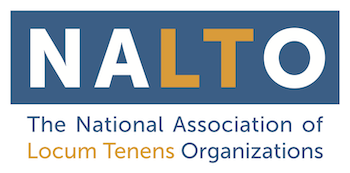Electronic Medical Records have great potential in healthcare. They can, however, cause issues, including physician burnout. Using Locum Tenens clinicians can avoid this problem.
Since their implementation, Electronic Medical Records (“EMR”) have helped clinicians treat and care for patients. These digital records provide healthcare organizations with the unique opportunity to monitor patient care over time. While they may ultimately improve clinical outcomes in the future, unfortunately, current use of EMRs has come at a cost, including the issue of clinician burnout.
The HITECH Act and Meaningful Use
In 2009, the Health Information Technology for Economic and Clinical Health Act (“HITECH”) was adopted. It was initially enacted in an effort to encourage medical practices to utilize EMR systems. Healthcare facilities that could show “Meaningful Use” would be offered financial incentives. The goal of HITECH and its regulations was to streamline patient care and improve patient outcomes.
Originally, the adoption of HITECH and Meaningful Use had three stages. Healthcare organizations were required to meet the government’s demands in each stage in order to gain the financial benefits. These criteria may include a baseline number of EMR transactions, electronic prescribing, and security risk analysis, for example. The requirements had to be met within each stage to guarantee receipt of the government benefits. With the recent end of Stage 3, mandatory performance of meaningful use is looming for clinicians. This adds increased pressure to perfect each provider’s EMR system.
With the implementation of EMRs, new regulations, and strict time frames, healthcare facilities have undoubtedly experienced complications. Thus, instead of having its intended effects, many physicians are finding inefficient performance.
Clinician Burnout Caused by EMRs
Clinician burnout has become a detriment to healthcare organizations. Some factors that attribute to this burnout include:
- Long work hours;
- Micromanagement and lack of decision making abilities;
- Depersonalization and decreased emotional response to patients;
- Office politics and disorderly work environments;
- The increasing potential for malpractice litigation;
- Impaired work-life balance;
- Time pressures and constraints; and
- Lack of opportunities for personal achievement or recognition.
The newest factor leading to this growing issue is use and implementation of EMRs.
The complicated process of adopting an EMR system and coordinating its use among staff can be quite burdensome for a healthcare facility. The pressure to meet the deadlines and use the system properly is only compounded by the looming date of its mandatory implementation.
This burnout is both cause and effect for mistakes that are made throughout the patient care processes. The frustration caused by EMRs leads to costly errors and the effect of these errors is also detrimental to clinicians and the healthcare organization as a whole. Often times, burnout leads physicians to leave the practice, causing a high turnover rate and inconsistent patient outcomes. The cost is also monetary, with physician burnout costing over 200 million dollars per year.
Avoiding Clinician Burnout with Locum Tenens
While burnout is a distinct possibility for any medical facility, there are ways to avoid its negative effects. One of the best avenues to prevent burnout is through use of Locum Tenens clinicians. These medical professionals provide healthcare facilities with the extra support they need, in any area, right when they need it.
Providers who use Locum Tenens clinicians can choose from a wide variety of highly trained medical professionals. These individuals can provide the help that full-time clinicians require in order to avoid burnout. Not only can these clinicians attend to patients (thus giving the physicians extra time), they can also directly help with non-medical areas, such as reporting requirements.
Furthermore, Locum Tenens clinicians often have experience in a variety of fields and with a number of EMR systems. Because these individuals have worked with different providers, they can draw from their prior experiences to provide insight to their newly assigned placement. Specifically, these temporary clinicians can use their knowledge and expertise to improve the established EMR system.
Overall, Locum Tenens physicians can remove the burden caused by EMRs and allow full-time clinicians to refocus and recharge. Thus, Locum Tenens workers can help any healthcare organization avoid clinician burnout and its costly effects. If your organization is looking to avoid physician burnout, please contact us at NALTO today.
